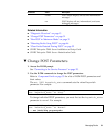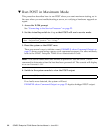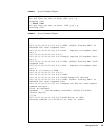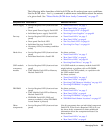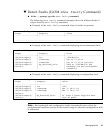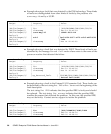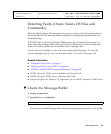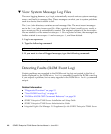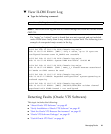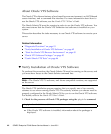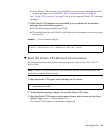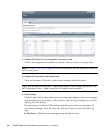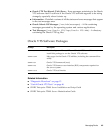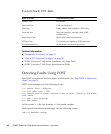
Managing Faults 39
Detecting Faults (Oracle Solaris OS Files and
Commands)
With the Oracle Solaris OS running on the server, you have the full complement of
Oracle Solaris OS files and commands available for collecting information and for
troubleshooting.
If POST, ILOM, or the Oracle Solaris PSH features do not indicate the source of a
fault, check the message buffer and log files for notifications for faults. Hard drive
faults are usually captured by the Oracle Solaris message files.
Use the dmesg command to view the most recent system message. To view the
system messages log file, view the contents of the /var/adm/messages file.
Related Information
■ “Diagnostic Flowchart” on page 13
■ “Detecting Faults Using LEDs” on page 34
■ “ILOM-to-ALOM CMT Command Reference” on page 58
■ SPARC Enterprise T5440 Server Installation and Setup Guide
■ SPARC Enterprise T5440 Server Administration Guide
■ Integrated Lights Out Manager 3.0 Supplement for the SPARC Enterprise T5440 Server
▼ Check the Message Buffer
1. Log in as superuser.
2. Issue the dmesg command:
The dmesg command displays the most recent messages generated by the system.
faults/0 | |
/SP/faultmgmt/0/ | sp_detected_fault | Ext FRU /SYS/IOX@X0TC/IOB1/LINK
faults/0 | | SIGCON=0 I2C no device response
# dmesg



